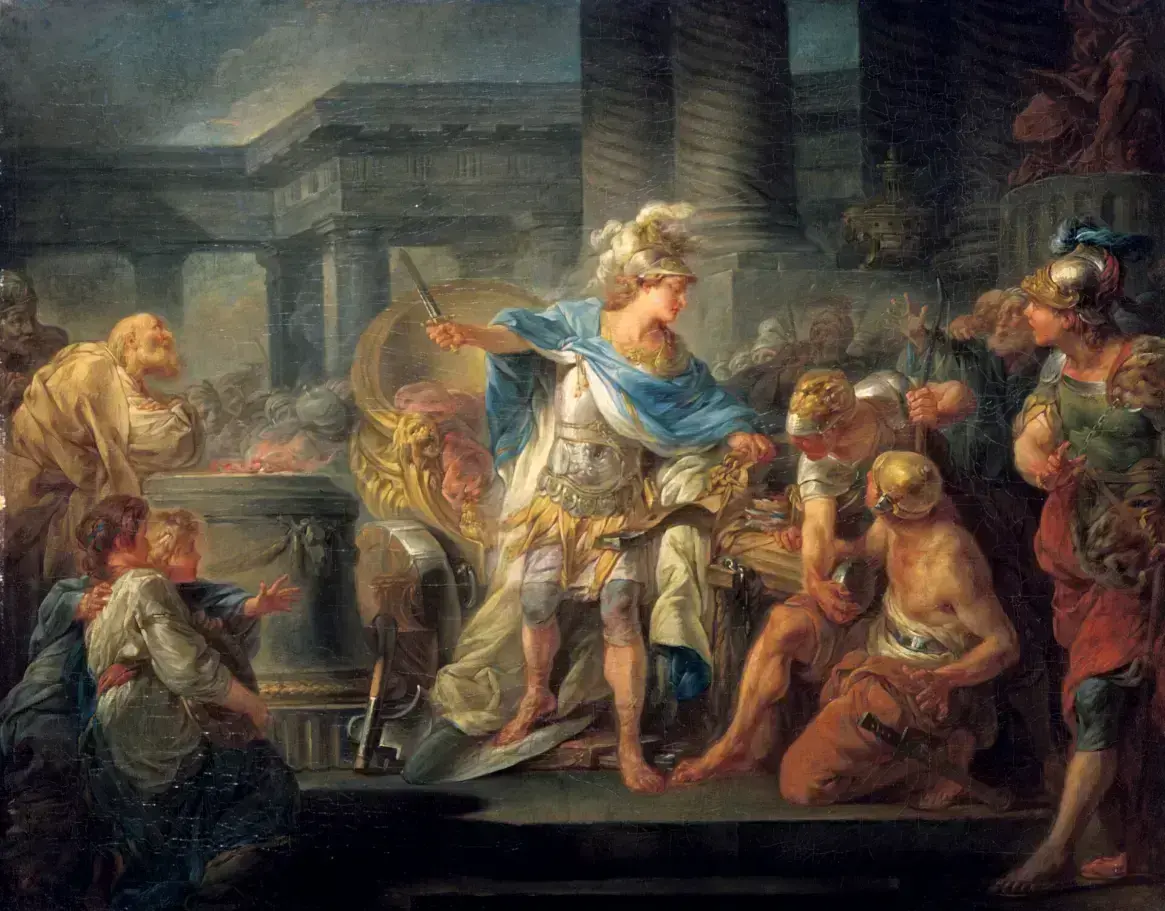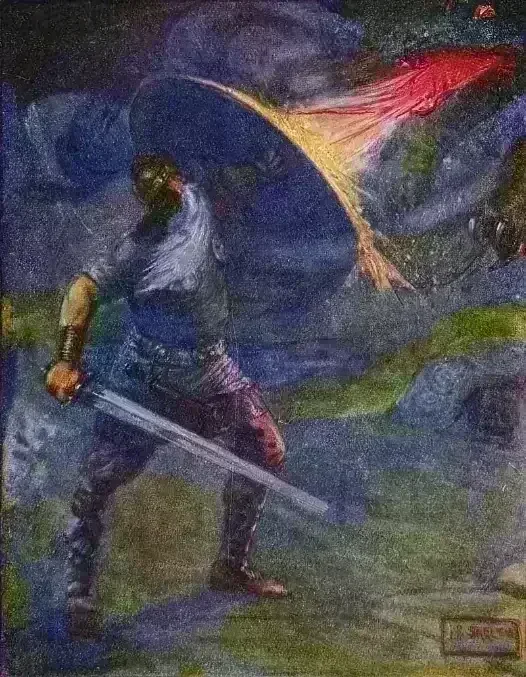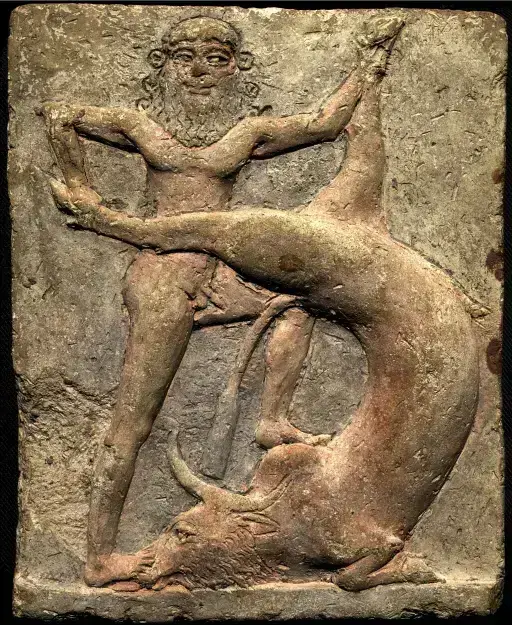Gordian Knot

The legend of the Gordian Knot is an Ancient Greek tale connected to Alexander the Great in the city of Gordium in Phrygia, involving an intricate knot securing an oxcart. According to tradition, whoever could untie this complex knot would be destined to rule all of Asia. When Alexander faced this challenge in 333 BCE, rather than methodically attempting to untangle it as expected, he boldly sliced through it with his sword, demonstrating an unconventional form of ingenuity.
This story has become a metaphor for solving an apparently impossible problem through decisive, direct action. The origin of the knot begins with the Phrygians, who were without a ruler when an oracle at Telmissus decreed that the next man to enter the city driving an ox-cart would become king. A farmer named Gordias fulfilled this prophecy and was crowned.
In gratitude, his son Midas dedicated the ox-cart to the Phrygian god Sabazios (whom Greeks identified with Zeus) and secured it with an incredibly complex knot made from cornel bark (Cornus mas). Roman historian Quintus Curtius Rufus later described it as "several knots all so tightly entangled that it was impossible to see how they were fastened." When Alexander arrived in the fourth century BCE, Phrygia had been reduced to a Persian province, but the legendary ox-cart remained in the former royal palace. Historical accounts differ on Alexander's solution.
The popular version claims he simply cut the knot with his sword. However, according to Plutarch and Arrian, citing Aristobulus, Alexander actually removed the linchpin from the pole, which revealed the ends of the cord and allowed him to untie the knot without cutting it. Some classical scholars consider this version more plausible.
Alexander went on to conquer Asia as far as the Indus and Oxus rivers, thus fulfilling the prophecy. This story is recorded in several ancient sources, including Arrian's Anabasis Alexandri, Quintus Curtius, Justin's epitome of Pompeius Trogus, and Aelian's De Natura Animalium.


